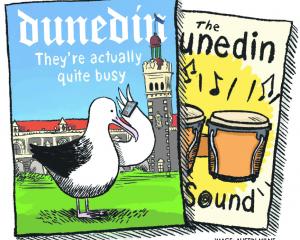
Yesterday, the company said the 2023 financial year had presented greater challenges than recent years as global economic conditions and inflationary pressures impacted negatively on demand and resulted in a significant lift in costs.
Earnings before interest and tax of $4.3m were a decrease of 38% on the previous year’s record result and included provisions and expenses of $1.3m related to share-based arrangements (including non-cash expenses) and one-off costs of $0.8m associated with the transition of the chief executive.
In May, NZM announced Australian agribusiness leader Angus Street had been appointed chief executive, replacing the company’s inaugural chief executive John Brakenridge.
Yesterday, Mr Street, who has been in the role for two weeks, said the business was about "more than just results" and exciting opportunities were in the pipeline.
A statement said interest costs for the year of $1.2m were driven by increased periods of stock holdings in line with shifts in brand partner requirements and the resulting deferral of some deliveries, as well as a substantial lift in interest rates. That deferral of deliveries also impacted negatively on operating cash flows.
Bales-sold volumes for the year increased by 11,000 bales; fine wool volumes increased by 6000 bales to 85,000, while strong wool increased by 5000 bales to 62,000 bales.

Responding to softening market demand for fine wool, NZM deliberately slowed its grower procurement activities in the last quarter to ensure it retained an alignment between supply and demand, and it expected that to continue for at least the first half of the new financial year.
Discretionary spending throughout the world had dropped off and NZM was not immune to that. But Mr Street said he was very proud that the business, throughout challenging times, had delivered a healthy trading ebit, given the macro environment and external pressures out of its control.
Total operating revenue was $171m, a 13% reduction on the previous year. The board determined it was not prudent to pay a dividend at this time.
Mr Street said NZM had invested a significant amount in the business around resources, processes, systems, technology and marketing in preparation for the "bounce back".
"For us, we have the luxury to be able to invest over the coming year and years to really generate more value when the economy starts to turn around. So many businesses ride the highs and lows; to be able to grow through the cycle, that to me is a really positive sign for a business. That’s what NZM does."
His priorities were the NZM team, its growers — some of whom he had already met — and the company’s brand partners and he was heading overseas at the end of the week for two weeks in market.
"I talk about it as a discovery phase. Immersing myself in what everybody’s been doing for years and years and years, then, for me, it’s just really around helping the business identify what are some of the good things we do and turn them from good to great."
Coming from Australia, there were different pressures on growers here and it was going to take a bit to understand regulatory and compliance issues. But growers were also "intrinsically optimistic because they are so passionate about what they do".
Trading of NZM shares on the Unlisted Securities Exchange continued to be subdued.
During the year, 66,000 shares were traded with shares trading in a range of $5 to $6.75 and a weighted average share price for the year of $6.12.
Outside of the USX trading, Mr Brakenridge and his wife Sarah sold the 538,000 shares they held in NZM to Australia’s AWN Rural Pty Ltd, resulting in AWN holding a 10.1% shareholding in the business.












